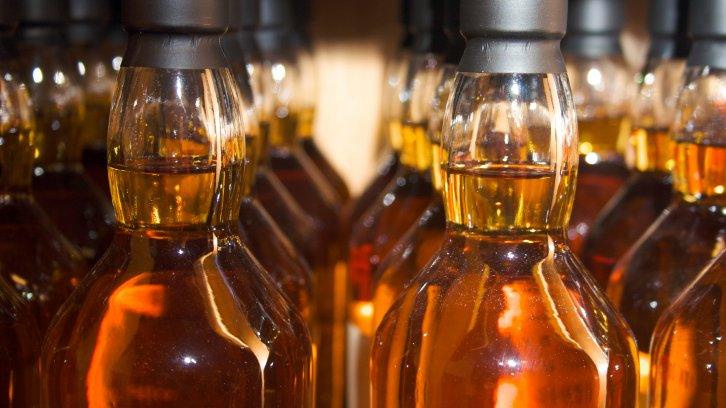Scottish courts back minimum alcohol price
- Published
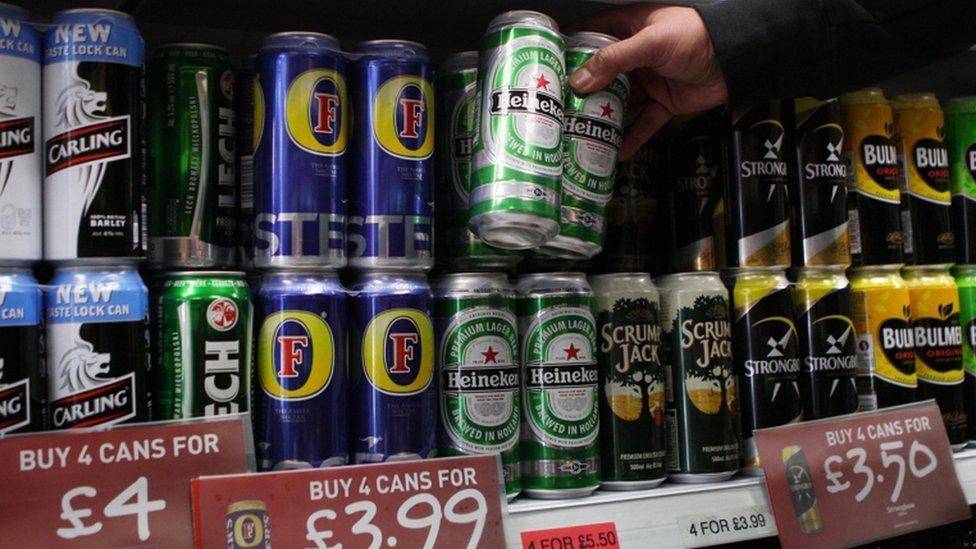
Plans to set a minimum price for alcohol in Scotland have been backed by the Scottish courts.
The Court of Session in Edinburgh ruled against a challenge by the Scotch whisky industry, who claimed the plans were a breach of European Law.
The ruling now paves the way for the Scottish government to implement its policy, passed by MSPs in 2012.
However, the judgement could be appealed by the drinks industry at the UK Supreme Court in London.
Under the plans, a price of 50p per unit of alcohol would be set, taking a bottle of spirits to at least £14.
The Scottish government, health professionals, police, alcohol charities and some members of the drinks industry believe minimum pricing would help address Scotland's "unhealthy relationship with drink".
But the Scotch Whisky Association and wine makers brought a challenge claiming it was a breach of trade law.
They said other policies should be considered as an alternative to minimum pricing, including an increase in tax
'Below cost sales'
However, in its ruling, the Court of Session said: "The advantage of the proposed minimum pricing system, so far as protecting health and life was concerned, was that it was linked to the strength of the alcohol.
"Current EU tax arrangements related to different types of product (wine, spirits, beer and cider etc) each of which had a range of alcohol strength....there was evidence which demonstrated that the alternative of increased tax, with or without a prohibition on below cost sales, would be less effective than minimum pricing."
The Scotch Whisky Association said it regretted the court's decision.
David Frost, chief executive of the organisation, said: "We continue to believe that [the policy] is a restriction on trade and that there are more effective ways of tackling alcohol misuse.
"However, we of course remain committed to working with all partners to address this problem so that the long-term trend of declining alcohol-related harm in Scotland continues.
"We will study the details of the judgement and consult our members before deciding on next steps, including any possible appeal to the UK Supreme Court."
By contrast, Tennent's said it supported the court ruling, calling it a "positive step" towards tackling alcohol misuse.
The brewer's managing director Andrea Pozzi said: "Although the majority of people enjoy alcohol responsibly, we are concerned about the availability of strong, cheap alcohol. We believe that minimum unit pricing can and will have a positive impact on communities across Scotland."
'Industry's delaying tactics'
The Scottish government called on the SWA and others in the drinks industry to respect the judgement of the court.
Aileen Campbell, Minister for Public Health, said: "The Scotch Whisky Association represents some of Scotland's finest whisky brands, and while they were entitled to raise this action, they, and the wider drinks industry, must now respect the democratic will of the Scottish Parliament and the ruling of the Court of Session and enable this life-saving measure to be introduced.
"This policy was passed by the Scottish Parliament unopposed more than four years ago. In that time, the democratic will of our national parliament has been thwarted by this ongoing legal challenge, while many people in Scotland have continued to die from the effects of alcohol misuse.
"Today's ruling is a landmark one, and should mark the end of the legal process, allowing this important policy to finally be brought forward."
Doctors' leaders also welcomed the ruling. Dr Peter Bennie, chairman of BMA Scotland, said a minimum price was the action needed to improve Scotland's "damaging relationship with alcohol".
He added: "Every year that has been lost to the alcohol industry's delaying tactics has brought with it a human cost in lives lost and health damaged.
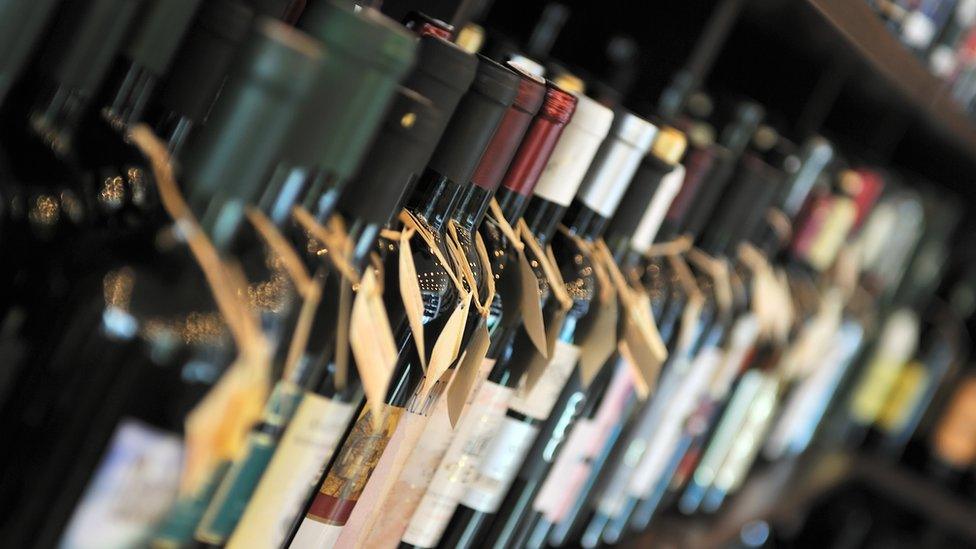
The Scottish government called on those in the drinks industry to end the legal process
"The alcohol industry needs to accept today's judgement and stop attempting to put their own agenda ahead of the public interest."
Alison Douglas, chief executive of campaign group Alcohol Focus Scotland, said it was a "great day for Scotland's health".
She added: "Scotland has been waiting more than four years to implement this policy, which will prevent thousands of hospital admissions and crimes, and save hundreds of lives.
"We hope that minimum pricing will now be put in place as quickly as possible so we can start seeing the benefits."
'Complex relationship'
Scottish Conservative health spokesman Donald Cameron said his party had supported the legislation on the condition it would be legally sound and could be dropped if it was found not to be working.
He said: "It's taken the SNP a considerable length of time to get to this stage.
"But now it's happened, we need to monitor the results closely to see what impact it has on Scotland's damaging and complex relationship with alcohol."
The issue of minimum pricing was referred to the European Court of Justice, which ruled last December that European law may have been breached by the policy.
However the European Court ruled that it was ultimately up to national courts to make the decision about whether to implement it.
Under the plans, the cheapest bottle of wine (9.4 units of alcohol) would be £4.69, a four-pack of 500ml cans of 4% lager would cost at least £4 and a 70cl bottle of whisky could not be sold for less than £14.
The SWA has argued minimum pricing would discriminate against poorer drinkers, and was beyond the power of the Scottish government.
The government's chief medical officer recommends the maximum weekly intake of alcohol is 14 units for both men and women.
- Published7 June 2016
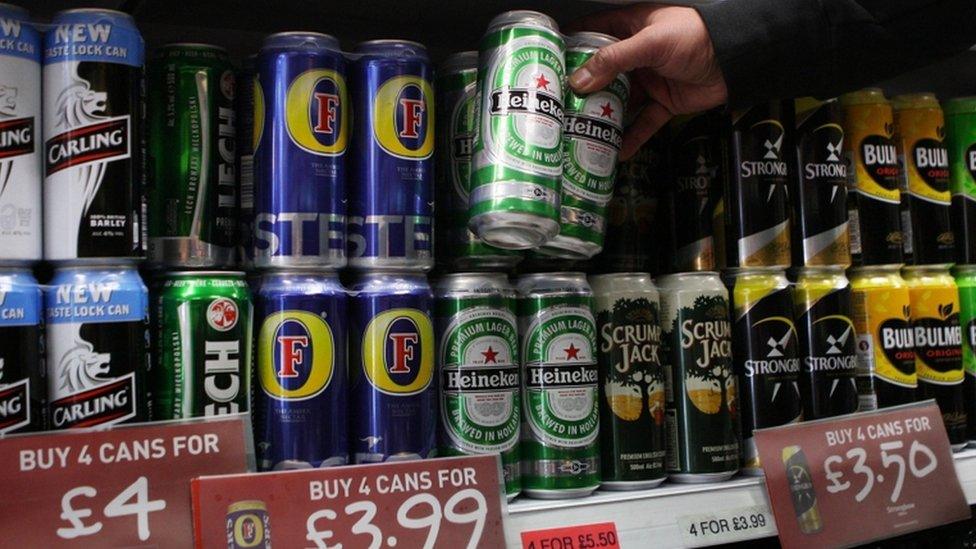
- Published7 June 2016

- Published23 December 2015
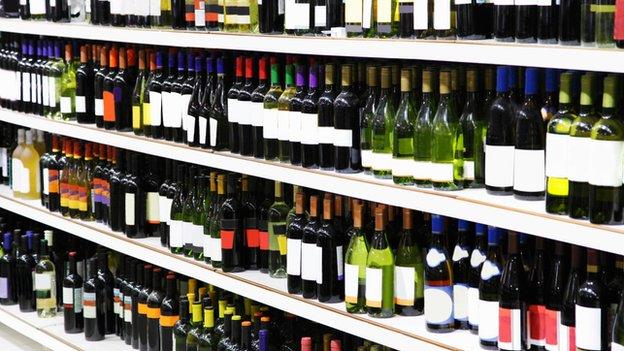
- Published3 September 2015
